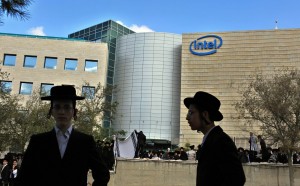Israel’s economy is incredibly strong – but has serious long-term problems
Can’t do” doesn’t seem to be in the vocabulary of Israelis. “We want to land on the moon”, says Yonatan Winetraub, founder of Team Space IL, a group of 100 Israeli volunteers striving to make Israel the third nation on the moon. Financed only by private companies, they plan to land a nano- satellite on the moon by 2014. “Israel is good at making things small”, says Winetraub. “Now we just copy that to space.” The moon mission is exemplary for the Israeli economy. Being a start-up itself, Israel made the leap from an agricultural socialist state to a highly competitive global hub for innovative business ideas in only 60 years. It has the highest concentration of start-up companies outside Silicon Valley. The macroeconomic statistics are promising. The economy is growing at impressive rates, with 4.8% in 2011 and an expected 2.7% in 2012; public debt is decreasing, and the budget is relatively balanced. Rating agencies back Israel’s creditworthiness.
“Israel has been facing all kinds of adversities, trying to overcome them through innovations”, says Saul Singer, who together with Dan Senor authored the 2009 book ‘Start-Up Nation – The Story of Israel’s Economic Miracle’. Israel’s innovativeness is the envy of many countries, especially after the global fi nancial crisis, which Israel, although extremely dependent on exports, survived with positive economic growth. Between 2004 and 2011, high-tech accounted for 71% of industrial exports and a 64 % rise in industrial employment. Almost half of the country’s production takes place in the hightech sector. “Israel has two economies: The high-tech economy and the rest. The former is doing very well, the latter lags behind”, says Singer. “Government bureaucracy makes it harder to open a restaurant in Tel Aviv than a high-tech start-up company.” That, among other serious problems, creates social gaps. “Israel skipped many years of development. Such a leap creates defi ciencies,” says Netanel Oded of the National Economic Council at the Prime Minister’s Office.
Hight poverty
The social protests in 2011 were a result of growing inequalities in the country. “The government has to re-order its spending priorities,” says Roby Nathanson, director of the Israeli Macro Center for Political Economics. Away from extensive defense expenditures to social service spending. The Trachtenberg Committee, set up by the government as a reaction to the protests, is supposed to deal exactly with this issue. “The government is more occupied with the cost of living than with the labor market,” says Dan Catarivas of the Manufacturers’ Association of Israel. He warns of a reduction of defense expenditures. “Unwary cuts could reduce the orders for the local industry drastically. We may save money in defense, but have to pay unemployment benefits.”
“Labor force participation is the most important issue for the long-term strategic position of Israel, economically and socially,” says Oded. The employment rates of Arab-Israeli females and ultra-orthodox males are just 20% and 40%, respectively. The problem is especially urgent because the Israeli economy lacks qualified manpower. Education, from primary school to vocational training, not only for Arab women and ultra-orthodox men, is the key. If employment, wage, and productivity rates in the Arab and ultra-orthodox communities were on a par with others, every year Israeli output would be 15% higher than it already is, and annual fi scal revenues would increase by 5% of GDP. Israeli entrepreneurs and trade unions are determined to meet the new challenge. This will not only decide the future of the Israeli economy but also the future of Israeli society.

